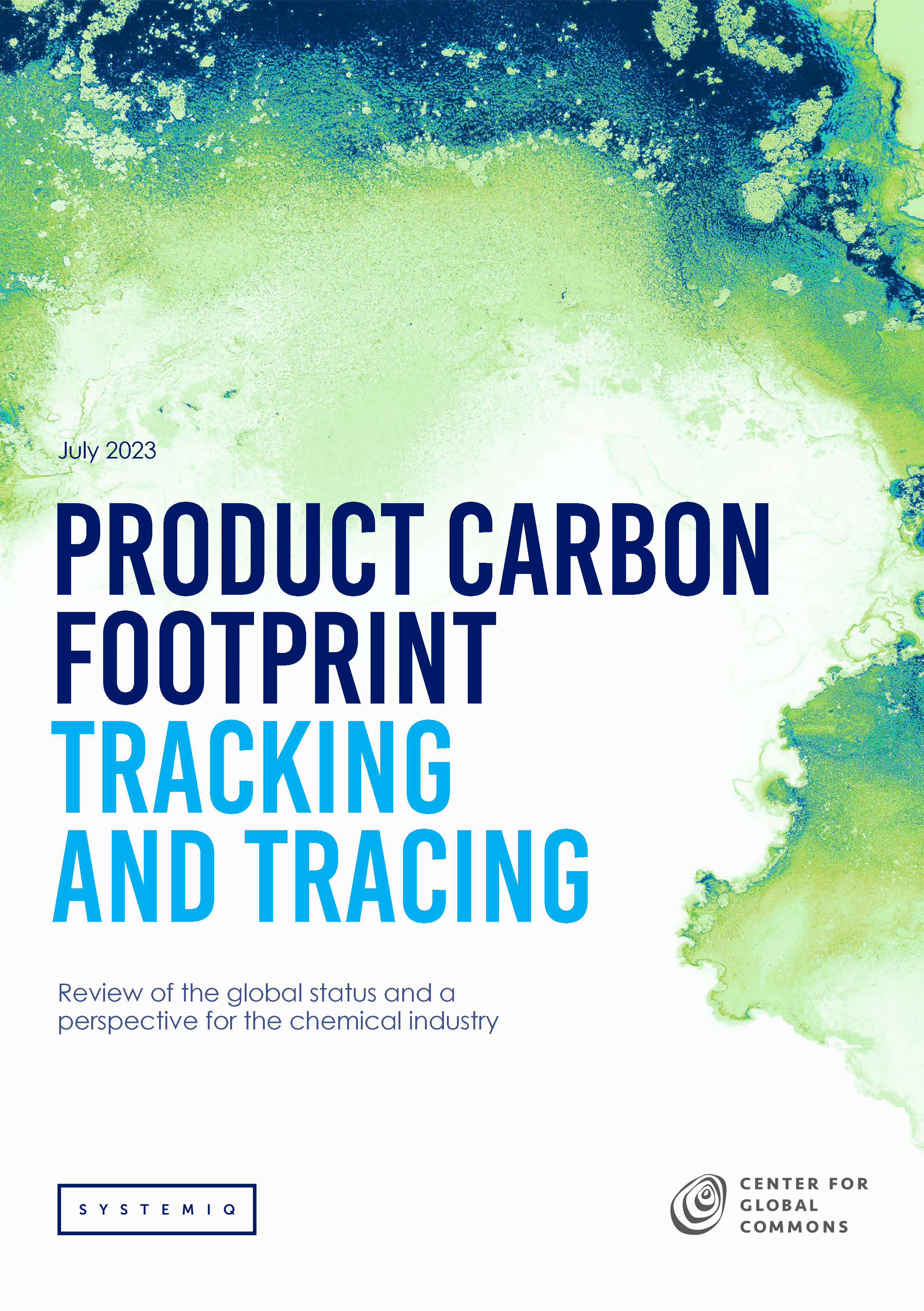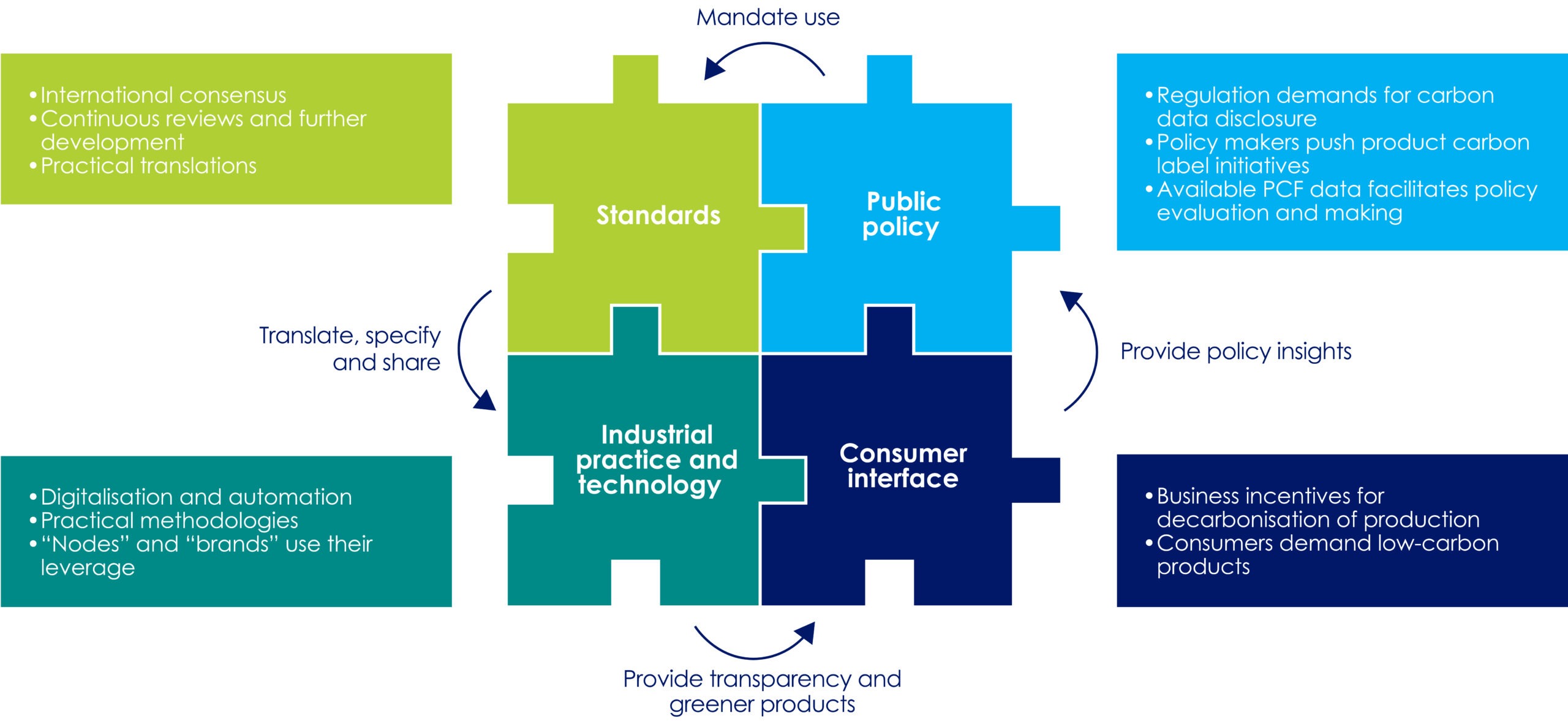Policy-makers, industrial manufacturers and chemical companies all need to take urgent action on decarbonising the economy. Product carbon footprint tracking and tracing (PCF) has emerged as a crucial tool for managing their way to a low-carbon future.
A new Systemiq study explores the significance and global status of PCF assessment in the chemicals sector and beyond.
Product carbon footprint tracking and tracing assesses a product’s greenhouse gas emissions over its lifecycle, from sourcing raw materials to manufacturing, transportation and disposal – providing vital transparency for companies and regulators targeting net zero.
Our new study, “Product Carbon Footprint Tracking and Tracing – Review of the global status and a perspective for the chemical industry“, examines how PCF can be successfully implemented in the chemicals sector and beyond.
Product carbon footprint: Four building blocks
PCF tracking and tracing can create business value and act as a catalyst for decarbonisation, particularly in the chemicals sector. But successful and scalable PCF requires four key building blocks, which in turn require a collective and well-aligned effort:
- Standards: Establishing harmonised PCF standards throughout supply chains and industries is fundamental to enabling effective tracking and tracing.
- Consumer Interfaces: While consumer interfaces have the potential to promote greener products, their current impact remains limited. The report explores the opportunities and challenges in this area.
- Industrial Practice and Technology Pioneers: Highlighting the importance of pioneers in industrial practice and technology, the report showcases how they are accelerating the adoption of PCF methodologies.
- Policy: Recognising policy as a critical enabler, the report emphasises the need for governments to develop and implement effective PCF policies.

Tilmann Vahle – Director, Sustainable Mobility and Batteries
“The time is ripe for policymakers and industry executives worldwide to collectively develop solutions that foster the scaling of PCF and pave the way to a decarbonised future. With this study, we offer insights and recommendations to support this crucial endeavour. By embracing PCF tracking and tracing, we can create the necessary transparency and drive meaningful change in our journey towards a sustainable and low-carbon economy.”
Recommendations for stakeholder action
Building upon the analysis, the report provides strategic recommendations for government, industrial manufacturing companies, multilateral initiatives, as well as chemical companies:
- Governments should develop and adopt robust PCF policies that encourage and facilitate decarbonisation efforts across industries.
- Industrial manufacturing companies should leverage consumer pressure as a powerful driving force for decarbonisation.
- Multilateral initiatives should act as industry coordinators, maximising their potential to catalyse policy action and facilitate collaboration among stakeholders.
- Chemical companies should take an active role in shaping the PCF landscape by collaborating with the entire ecosystem and driving innovation.
This report was published by Systemiq commissioned by the Center for Global Commons (University of Tokyo) and supported by Mitsubishi Chemical Corporation.
To learn more, contact Tilmann Vahle or Timon Rückel. You may also be interested in our Planet Positive Chemicals study, which presents pathways for the chemical industry to enable a sustainable global economy.



